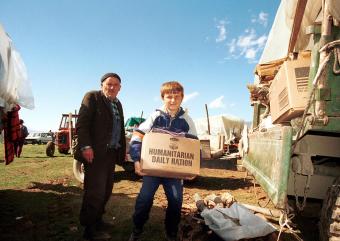Refugees & Resettlement
Refugees & Resettlement
Recent Activity
Video, Audio
June 26, 2015
A discussion of the findings of a new MPI report examining refugee characteristics at arrival for the ten largest national-origin groups resettled between 2002-2013, as well as their integration outcomes with respect to employment and incomes, English proficiency and education levels, and public benefit use.










